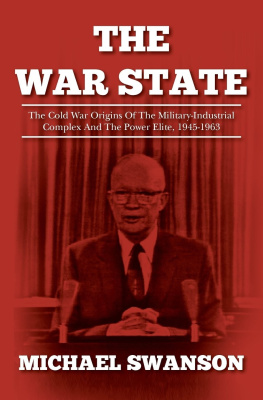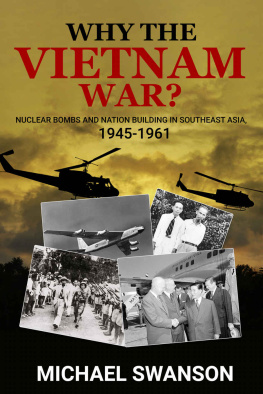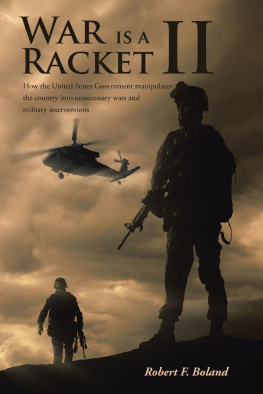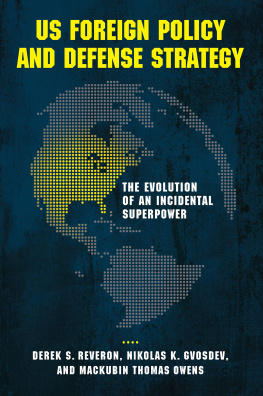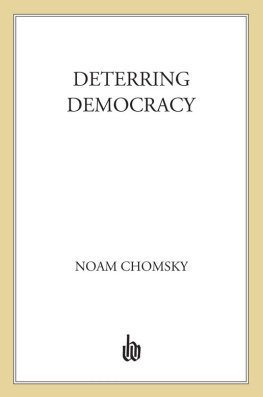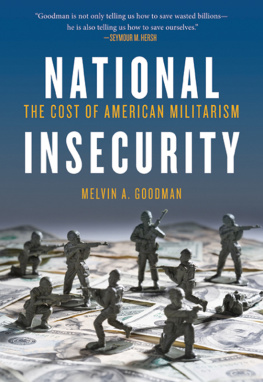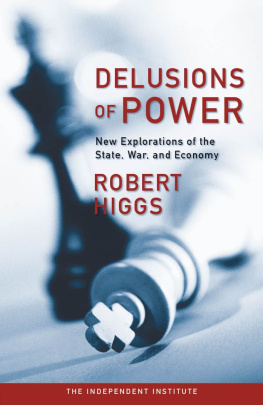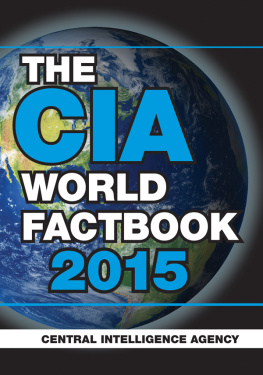THE WAR STATE
The Cold War Origins Of The Military-Industrial Complex And The Power Elite, 19451963
by
MICHAEL SWANSON
Published by Michael Swanson
Copyright Michael Swanson, 2013
e-book formatting by
All rights reserved. Except as permitted under the U.S. Copyright Act of 1976, no part of this publication may be reproduced, distributed or transmitted in any form or by any means, or stored in a database or retrieval system, without the prior written permission of the publisher.
Were the Soviet Union to sink tomorrow under the waters of the ocean, the American military-industrial complex would have to remain, substantially unchanged, until some other adversary could be invented. Anything else would be an unacceptable shock to the American economy. - George Kennan, 1987
Introduction
This is not a book bashing military service. My grandfather fought in World War II as a sergeant under General Patton, and my father, Dennis R. Swanson, also served twenty years in the United States Army. At the start of his career, he interned as a doctor at Walter Reed, taking care of soldiers coming back from Vietnam. Then in the 1980s, toward the end of his career, he reached the rank of colonel and served as head of preventive medicine for the army and as an adviser to the army staff. In his last year in the military, he participated in many briefings with General Maxwell Thurman, who was the vice-chief of staff for the army from 1983 to 1987 and then went on to head the invasion of Panama for President Bush after my father retired.
I remember when I was a kid in 1989 watching my dad celebrate the televised fall of the Berlin Wall as he drank a few glasses of wine. He grew up as a child of the Cold War. As an adult, his whole life in the army was dedicated to opposing the Soviet Union. He worked on contingency plans to defend against Soviet chemical weapons attacks against American soldiers in Europe in case World War III broke out. He gave briefings at the Central Intelligence Agencys headquarters in Langley, Virginia, off the George Washington Memorial Parkway, and had an office in the Pentagon.
When he saw the Berlin Wall fall, he toasted to victory. Books came out saying how we were now approaching the end of history, because the ideological battle against communism had been decisively won by the West and the United States. My dad knew he was reaching the twilight of his career, and I remember him marveling at the end of the Cold War. He wondered if in some way the US military would be out of a job. Without the Cold War spy conflict, he thought the Central Intelligence Agency no longer served any purpose, and he believed that without the threat of a war with the Soviet superpower, defense spending would shrink and the number of people serving in the military would too.
But none of this happened. Yes, there were force reductions and base closings during the presidency of Bill Clinton, but he did not reduce military spending in any big way. After George W. Bush succeeded him as president, shock from the 9/11 terrorist attacks in 2001 gripped the country and he announced a new War on Terror that proclaimed every nation in the world was now to be considered either friend or foe. He declared three of themIran, Iraq, and North Koreapart of an Axis of Evil even though they had nothing to do with the attacks of 9/11 and little to do with one another.
It was a good-and-evil dynamic similar to that of the Cold War. In the 1950s, during the first decade of the Cold War, Communist spy cells with more fictional substance to them than reality were all the fear of the age. In the years following 9/11, news of the capture of sleeper cell terrorists would repeat every few months on the television set, along with new terror alert codes of green, orange, and red; and once the terror danger level went above green, it never went below it again.
Military spending rose to record levels. The United States went to war in Afghanistan and Iraq and engaged in covert wars in the Horn of Africa, engaged in bombing campaigns in Libya, and in drone raids in Pakistan and Yemen. All too often, though, these wars seemed unwinnable or to only result in chaos and confusion in the nations where they took place. It seemed in many ways the United States had reverted to the ways of the Cold War, with big defense spending, bloated fiscal deficits, talk of nuclear attacks, fears of secret cells, and wars that seem to have no end, even though, if you step back and think about it, the number of real terrorists in the world probably only ever numbered one thousand people at the most. Why does the United States have a pattern of fighting so many winless wars?
My dad and many others thought the end of the Cold War would bring a more peaceful world and change the place of the military in American society and in the federal government, but today the defense industry and the national security establishment are more powerful than ever, while the enemies of today are mere mites compared to the old Soviet threat. To really understand how we got to where we are today you must look back to the origins of the Cold War. The 9/11 attacks were not really the turning point people thought they were at the time. It takes some perspective to see this. You see, this is not your typical history book.
What is this book about? If you consider the word history you will notice that the word story makes up half of it. Most historical works you pick up are narratives with a point to them. They may tell you the story of heroes of the pastpresidents, soldiers, activists, or regular peopleand the events that they were caught up in to give you a new respect for the people of history or to inspire you to believe in a certain way. This book is a little different. What I want you to do is to take a journey with me into the past to try to understand the forces behind events that still move headlines today. We are going to dig deep together and ask what is really behind the presidential decisions of war and peace?
History can tell us. This book focuses on the emergence of the United States as a global superpower after World War II and its Cold War with the Soviet Union. It looks at events familiar and unfamiliar to students of the era and looks deep into the complex political realities that drove them. It seeks to discover how the new post-World War II role of global supremacy changed the United States into a permanent big-government war state and to reveal the often hidden domestic power struggles at the top that took place inside the country as a result and have even put American democracy in peril.
This is a book ultimately about deep power and the processes of power often obscured behind the surface stories of history. To see this, one must look beyond single events and connect them together to understand the patterns of thought and action behind them. For example, in a typical history of war or foreign policy, one often thinks of countries as two forces against one another, such as the Axis versus the Allies during World War II or the free world, led by the United States, versus the Soviet Union and its satellite states behind the Iron Curtain during the Cold War. But to look at the real workings of power means looking beyond the external politics between nations and into the internal politics and bureaucratic infighting that often really drives a nations foreign policy.
Looking deep into real history can be tough to do. One problem is what leaders say they are doing and what they are really doing are often two different things. As a result, to look deep at power can lead to shaking your own faith in ones leaders, something that can be too difficult for some to contemplate. It can also mean arguing against vested interests who seek to maintain their power by being as secretive as possible.
World War II was a turning point in the history of the United States as it came out of the war as the worlds strongest power. We will examine how its new position in the world impacted its domestic politics and economy. We will look at the rise of the military-industrial complex and the national security state and how they transformed the federal government into a war state. Well see how contemporaries tried to understand the huge shifts in power that were taking place inside the United States at the time and witness presidents try to deal with the new bureaucracies created as a result of the Cold War and the growth of the federal government and how they were often co-opted by them and at times tried to fight them.
Next page
